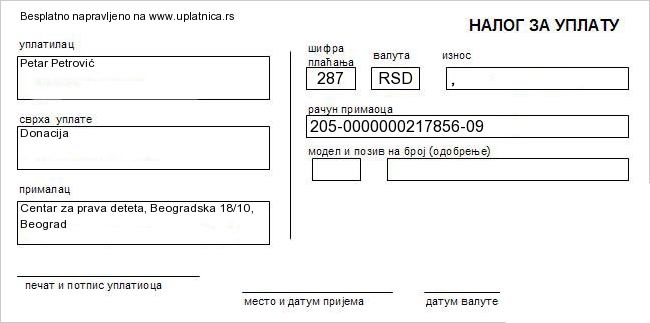
World Family Day is celebrated around the world today. The United Nations General Assembly declared May 15, 1993, as World Family Day to encourage member states to recognize the need to strengthen the family as an institution.
All individuals, and society as a whole, are deeply affected by the health crisis caused by the COVID-19 pandemic, as well as the economic crisis that accompanies it. The help and support of the community and institutions are especially necessary for the most vulnerable individuals in society, and especially children. Families face loss of income, fears of the unknown and economic insecurity, leading to an increased risk of violence against children, in the number of child marriages, as well as sexual abuse and exploitation of children. During self-isolation, children are at a greater risk of sexual exploitation and abuse on the Internet, and Europol reports increased online searches for material containing child sexual abuse during a pandemic. Since children most often spend time on social networks, they can very easily become the target of sexual predators and abusers on the Internet, especially due to feelings of loneliness and anxiety.
On this occasion, we also remind you of the worrying data on children’s exposure to corporal punishment. According to the 2014 UNICEF Multiple Indicators Survey (MICS) on women and children, in Serbia 43% of children ages 1 to 14 are exposed to at least one form of psychological or physical punishment by household members. About 39% of children are exposed to psychological punishment, while 17% are exposed to physical punishment. The fact that corporal punishment is most common among children aged 3 and 4 is worrying. 8% of children were subjected to severe corporal punishment, with more girls than boys. In order to protect children from violence in all environments, it is necessary to act holistically, which includes unambiguous legislation that explicitly prohibits any form of corporal punishment for the purpose of discipline. Prescribing a ban on corporal punishment of children in all settings, in addition to meeting the recommendations of international bodies that monitor the implementation of ratified conventions, would lead to the construction of non-violent models of behavior in our society and a safer environment for children.
Facing the current pandemic and its long-term consequences, it is very important to strategically focus on providing resources to strengthen children and families during and after the crisis, especially families and children from the most vulnerable groups. Special care and protection must be provided for children with disabilities, migrant children, Roma children, children living and working on the streets, children with HIV/AIDS, children belonging to the LGBTI population and other vulnerable children, so as not to further aggravate their situation.
The Child Rights Centre implements Project “Positive parenting” with financial support of EU within the programme European Instrument for Democracy and Human Rights in Serbia with an aim of contributing to protection of every child in Serbia from all forms of violence through an effective legislative framework consistently enforced in all surroundings. The project is co-financed by the Office for Cooperation with Civil Society of the Republic of Serbia.
Belgrade, May 20, 2020
Media shares:
